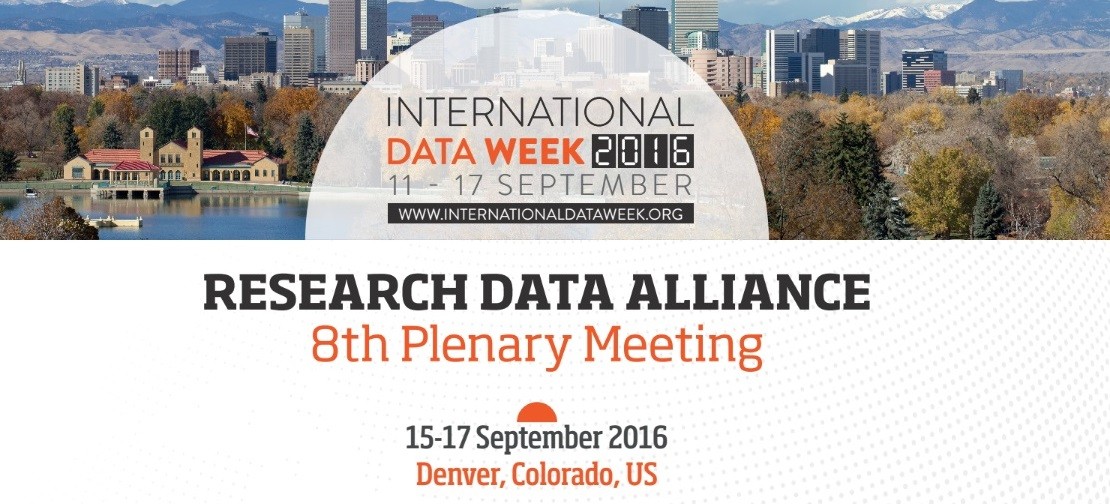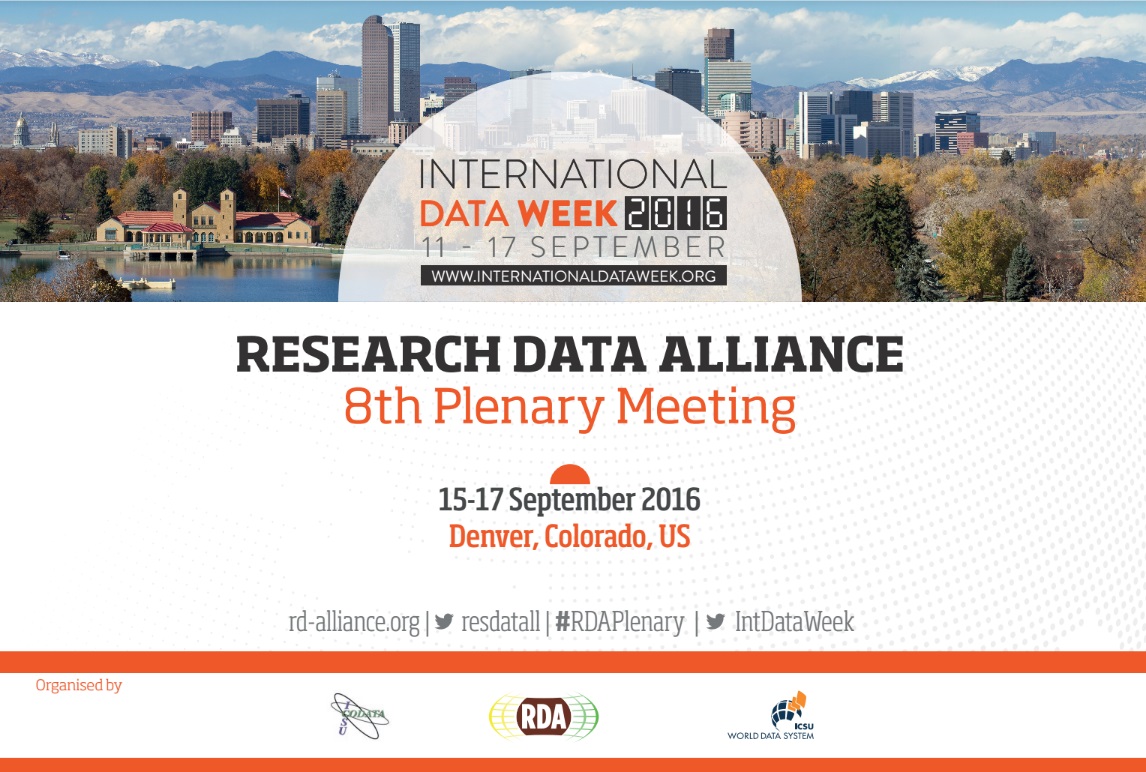Valuing Community relationships in building Recommendations that make data work @Research Data Alliance 8th Plenary Meeting, Denver, US September 2016

 |
The Research Data Alliance is a unique community-driven organization that offers a neutral space where its engaged, growing members, now more than 4300 spanning 110 countries, discuss and develop “data bridges” to enable the open data sharing across technologies, disciplines, and countries to address the grand challenges of society.
These “data bridges” or “building blocks” of common global data infrastructures are the results of the work done by the RDA Working and Interest groups, formed of researchers, data practitioners and experts representing different domains and organisations from around the world.
With 15 Flagship Recommendations published, RDA is becoming increasingly committed to build awareness around them, supporting community consensus, uptake and adoption.
|
In light of this commitment, the RDA Recommendations have held the center stage at the 8th RDA Plenary meeting, organized last week in Denver (CO) as part of the International Data Week landmark event (11 – 17 September 2016). Adoption and implementation were the light-motifs of the two Recommendations and Adoption dedicated Sessions, as Mark Parsons, RDA Secretary General stressed “Solving the problem must include adopters in the process, to ensure that real problems are addressed. Open problem solving is the key.” [1]
The “fruits of the RDA implementation based philosophy”, as Parsons states, can be seen in the growing constituency willing to test, adopt and implement the RDA Recommendations. There are more than 65 recorded adoption cases with interesting additions following the RDA Plenary Meeting in Denver such as the Data Foundation Terminology Model now implemented in Fedora with developments foreseen for DSpace and Invenio or the adoption cases of the various Recommendations across domain specific infrastructures such as the biomedical science, agriculture, forestry or ocean sciences infrastructures. These are particularly important adoption cases as they prove the vast yet substantive applicability of the Recommendations across groups and domains within data community regardless of disciplines or organisations.
As part of the Outputs exploitation and sustainability effort in Europe, Trust-IT Services is closely monitoring the EU success stories of adoption and implementation, leading the engagement activities that consolidate the European constituency.
_______________________________________________________________________________________________________
[1] Mark Parsons - Research Data Alliance:Philosophy, Structure, and Governance – RDA for Newcomers, 8th RDA Plenary presentation
Publication date:
21
Sep
2016
